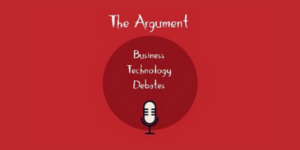Paul: Micro-services.
Venky: Micro-services. Okay. Micro-services is the definition and the way they are implemented. They do a very specific function that can be completely contained and packaged. They will never give you something that an end-user can really make use of.
Paul: Can you give me an example of that? Is Calculate Premium a micro-service?
Venky: If it can do everything that it needs to do without calling any service or other systems.
Paul: Micro-services is a service granularity pattern?
Venky: Yes.
Paul: Does that include infrastructure and those kinds of aspects as well?
Venky: It is so contained that it has it’s own data source, it has it’s own model, so that you can actually package and give to someone and it does that function for them.
Paul: Okay. At some point, I’d like to get rules for the road for granularity decision making around micro-services.
Venky: Right.
Paul: I hear API, macro-service, micro-service, macro-service with business model. Micro-service being a granularity question that is a containment policy related to data model, business logic, and access point, but not direct user interface?
Venky: Correct.
Paul: Okay.
Venky: It is very hard to find a micro-service that you can use as a business value because at the end of the day …
Paul: We’ll find a way to re-say that because obviously we don’t want to build … We’re not building it because it doesn’t provide business value, it doesn’t necessarily talk to a … It’s not specifically for a user interface. It’s not application level.
Venky: Correct.
Paul: Okay.
The full interview is available to FULL MEMBERS







